Catalonia’s government spokesman says over 400 people have been injured, some seriously, during the police crackdown Sunday on a banned referendum on breaking away from Spain.

Jordi Turull said he couldn’t disclose more details about the wounded out of respect to their relatives. Police fired rubber bullets near at least one Barcelona polling station, and have clashed with protesters throughout Catalonia.
The regional government’s spokesman, Jordi Turull, blamed the violence directly on Spanish Prime Minister Mariano Rajoy and Interior Minister Juan Ignacio Zoido.
Turull said that actions by Spanish National Police and Civil Guard forces on Sunday were politically motivated and showed “a clear motivation to harm citizens.”
Catalan international affairs director, Raul Romeva, said that regional authorities would appeal to European authorities for Rajoy’s governments’ violations of human rights.
WATCH: Spanish demonstrators rally in Madrid against planned Catalonia independence referendum

Spanish riot police burst into polling stations across Catalonia on Sunday, confiscating ballot boxes and voting papers to try to halt a banned referendum on a split from Spain as Madrid asserted its authority over the rebel region.
Police broke down doors to force entry into voting stations as defiant Catalans shouted ‘Out with the occupying forces!” and sang the anthem of the wealthy northeastern region. In one incident in Barcelona, police fired rubber bullets.
WATCH: Catalonia president calls for referendum in Spain despite Scottish NO vote
Officers in riot gear forcibly removed people from a polling station in Girona and Catalan firefighters protected voters by standing between them and national police.

Get breaking National news
The referendum, declared illegal by Spain’s central government, has thrown the country into its worst constitutional crisis in decades and deepened a centuries-old rift between Madrid and Barcelona.
Despite the police action, hundreds-strong queues of people formed in cities and villages throughout the region to cast their votes. At one Barcelona polling station, elderly people and those with children entered first.
“I’m so pleased because despite all the hurdles they’ve put up, I’ve managed to vote,” said Teresa, a 72-year-old pensioner in Barcelona who had stood in line for six hours.
The ballot will have no legal status as it has been blocked by Spain’s Constitutional Court and Madrid for being at odds with the 1978 constitution.
A minority of around 40 percent of Catalans support independence, polls show, although a majority want to hold a referendum on the issue. The region of 7.5 million people has an economy larger than that of Portugal.
However much voting takes place, a “yes” result is likely, given that most of those who support independence are expected to cast ballots while most of those against it are not.
LARGE CROWDS
Organizers had asked voters to turn out before dawn, hoping for large crowds to be the world’s first image of voting day.
“This is a great opportunity. I’ve waited 80 years for this,” said 92-year-old Ramon Jordana, a former taxi driver waiting to vote in Sant Pere de Torello, a town in the foothills of the Pyrenees and a pro-independence bastion.
The Catalan government said voters could print out ballot papers at home and lodge them at any polling station not closed down by police.
Elsewhere, people were not able to access the ballot boxes. In a town in Girona province where Catalan leader Carles Puigdemont was due to vote, Civil Guard police smashed glass panels to open the door and search for ballot boxes.
WATCH: Spain’s Catalonia region gears up for independence referendum

Puigdemont voted in a different town in the province. He accused Spain of unjustified violence in stopping the vote and said it created a dreadful image of Spain.
“The unjustified, disproportionate and irresponsible violence of the Spanish state today has not only failed to stop Catalans’ desire to vote … but has helped to clarify all the doubts we had to resolve today,” he said.
Nicola Sturgeon, the leader of Scotland, which voted to remain part of the United Kingdom in a 2014 referendum, said she was concerned by the images she was seeing from Catalonia.
“Regardless of views on independence, we should all condemn the scenes being witnessed and call on Spain to change course before someone is seriously hurt,” she said on Twitter.
Belgian Prime Minister Charles Michel tweeted: “Violence can never be the answer! We condemn all forms of violence and reaffirm our call for political dialog.”
STATIONS RAIDED
Around 70 polling stations had been raided by police, Spanish Interior Minister Juan Ignacio Zoido said.
The aim of the raids was to seize referendum material and not to target people wanting to vote, another senior government official said.
Spain’s Deputy Prime Minister Soraya Saenz de Santamaría said police had acted in a proportionate manner.
“We have been made to do something we didn’t want to do,” said Enric Millo, the central government’s representative in Catalonia, at a news conference.
One analyst said the scenes being played out across Catalonia on Sunday would make it harder for Madrid and Barcelona to find a way forward.
“I think it is going to make the clash more intense and make it more difficult to find a solution,” said Antonio Barroso of Teneo Intelligence.
Puigdemont originally said that if the “yes” vote won, the Catalan government would declare independence within 48 hours, but regional leaders have since acknowledged Madrid’s crackdown has undermined the vote.
Markets have reacted cautiously but calmly to the situation so far, though credit rating agency S&P said on Friday that protracted tensions in Catalonia could hurt Spain’s economic outlook. The region accounts for about a fifth of the economy.
–With files from the Associated Press.







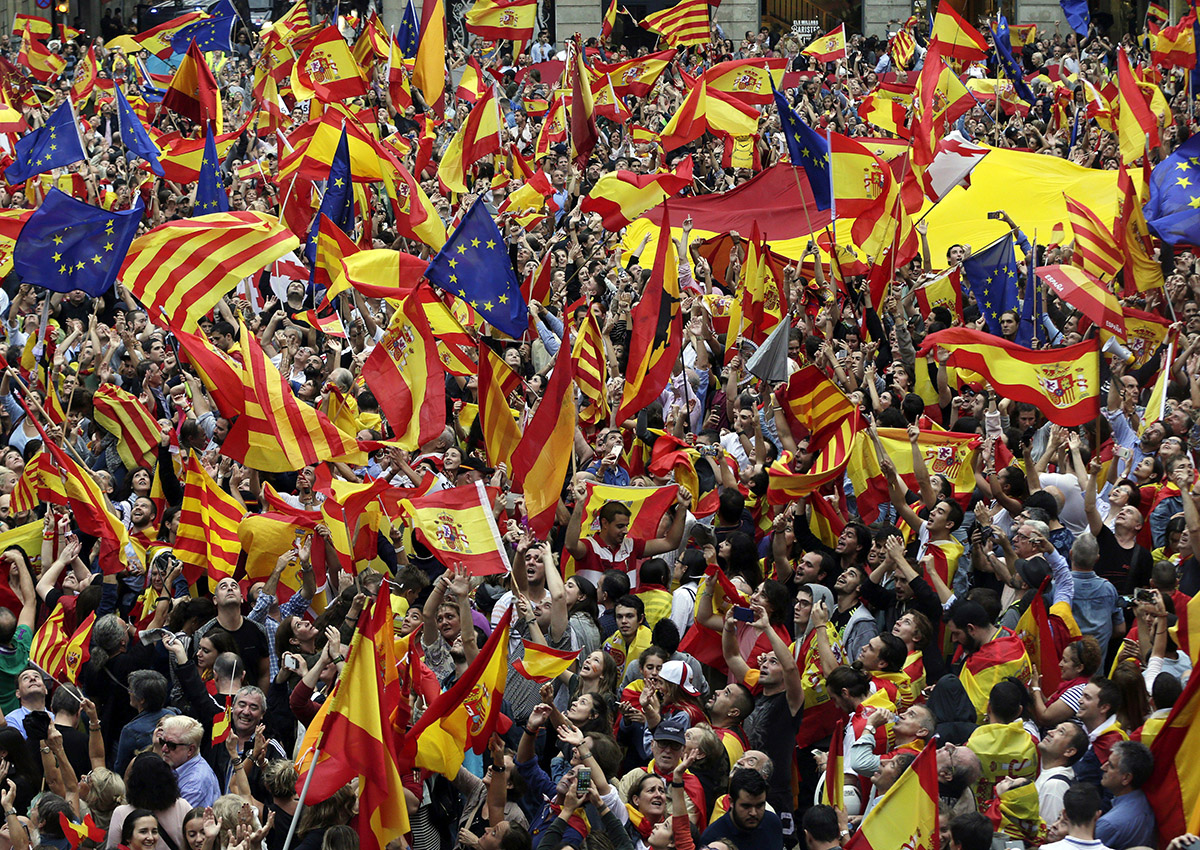

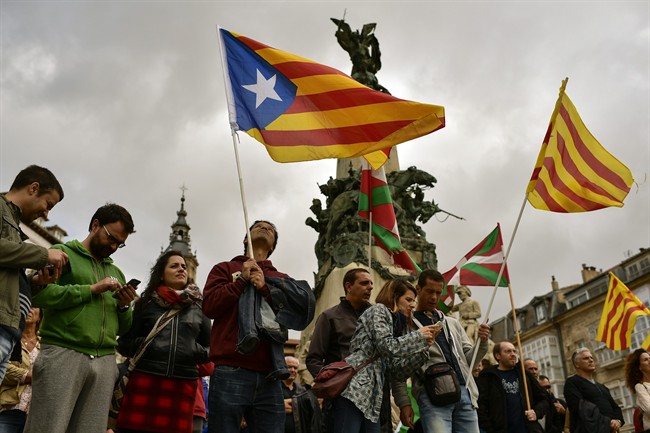

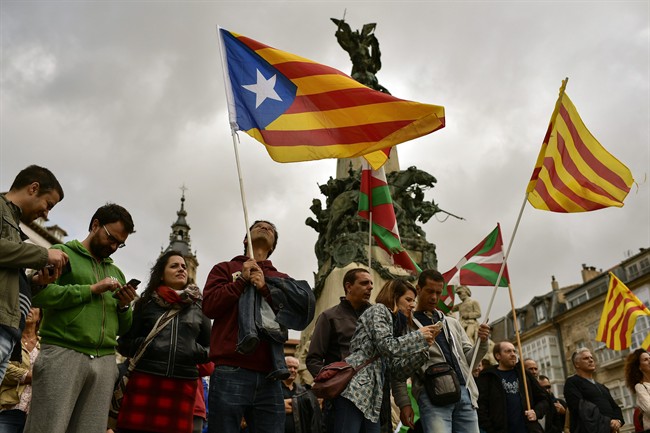

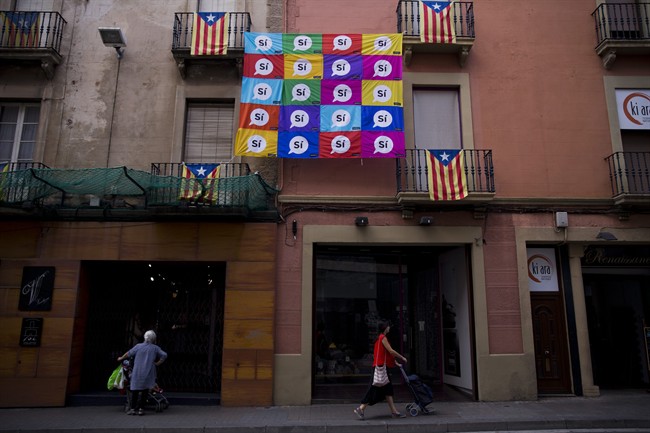

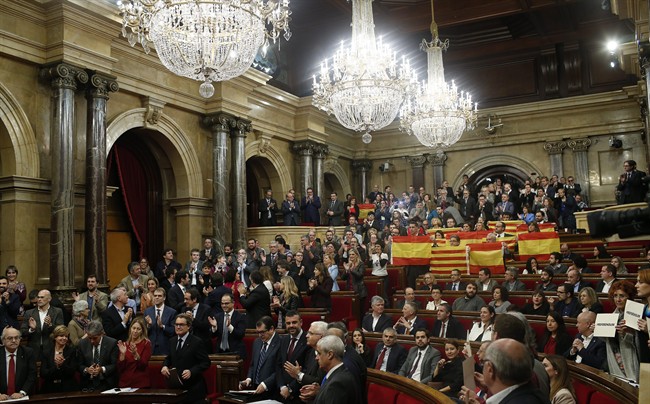

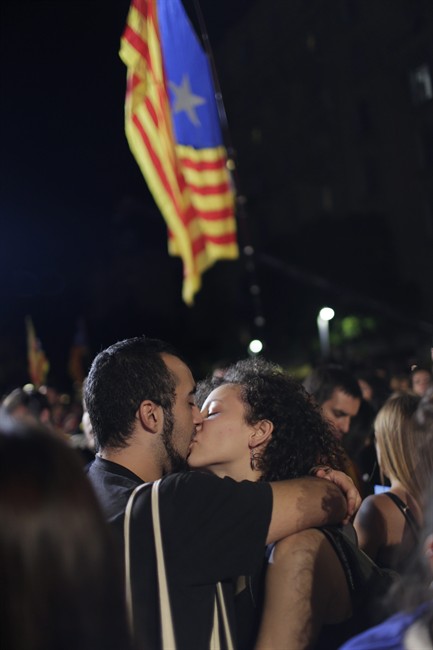

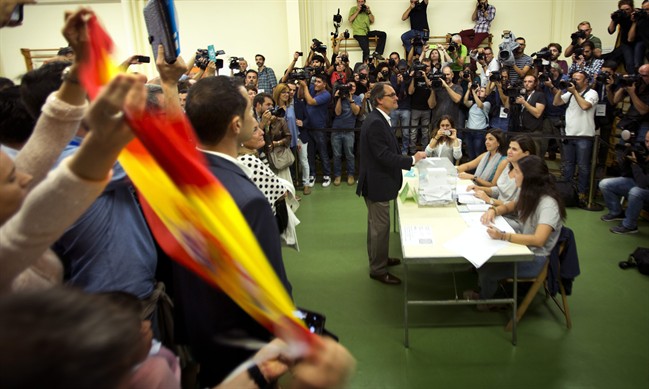

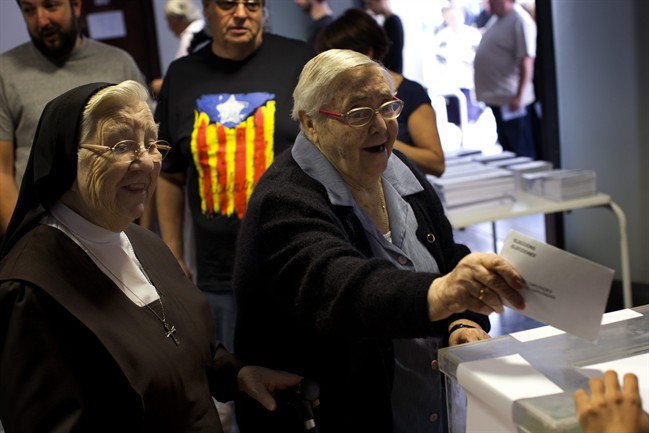



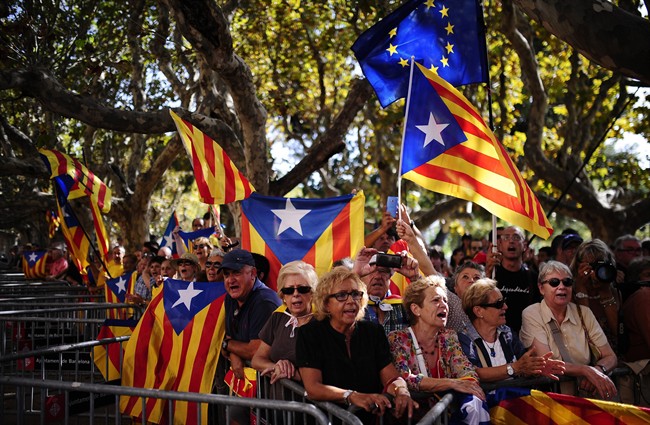

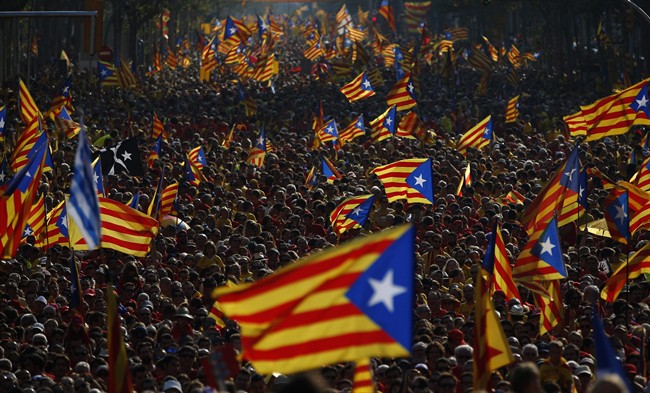

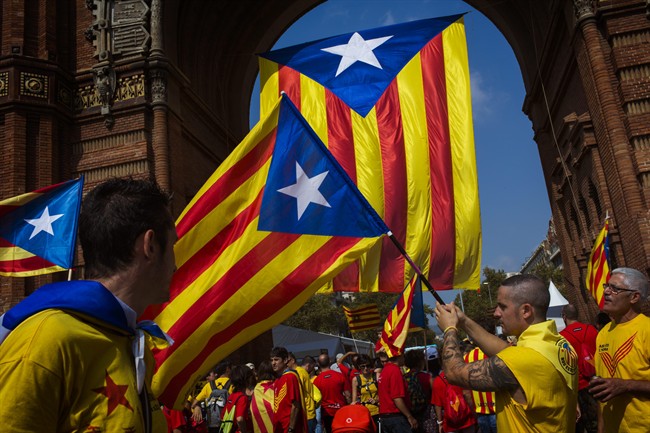

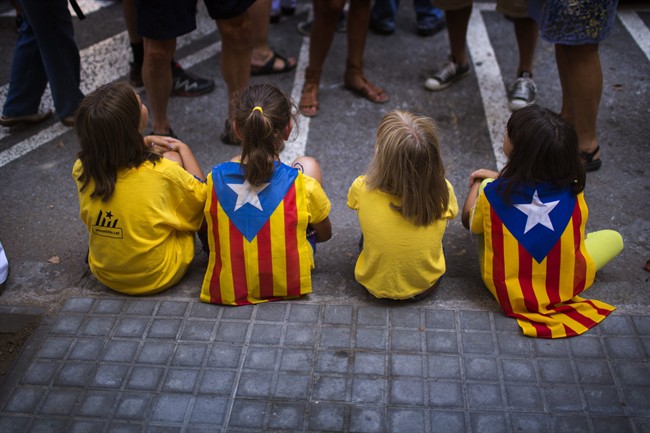





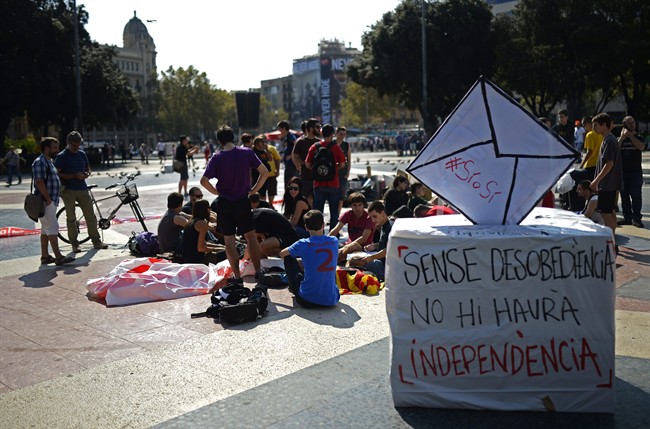






Comments
Want to discuss? Please read our Commenting Policy first.